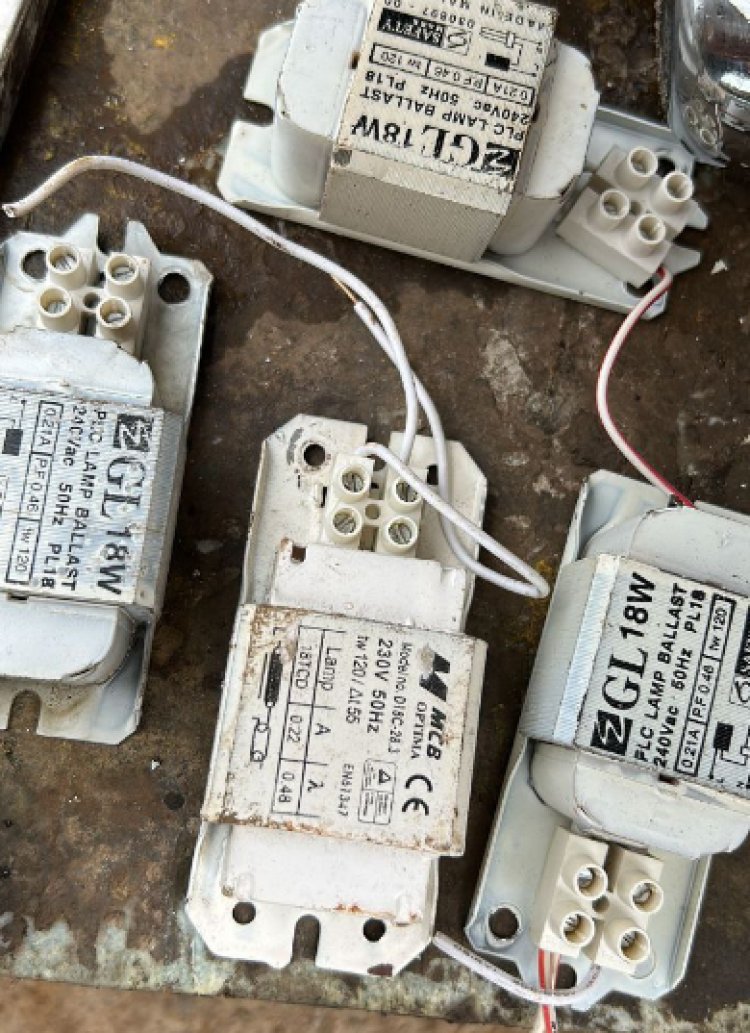Ferrous Scrap Metal in Singapore: An In-Depth Guide
Ferrous scrap metal plays a crucial role in the global recycling industry. In Singapore, the ferrous scrap metal market is thriving, contributing significantly to both environmental sustainability and economic growth.
Share this Post to earn Money ( Upto ₹100 per 1000 Views )
Ferrous scrap metal plays a crucial role in the global recycling industry. In Singapore, the ferrous scrap metal market is thriving, contributing significantly to both environmental sustainability and economic growth. This comprehensive guide will delve into the details of ferrous scrap metal, its importance, the process of recycling, and the market dynamics in Singapore.
What is Ferrous Scrap Metal?
Ferrous scrap metal refers to metals that contain iron. The most common types of ferrous scrap metals include steel, carbon steel, alloy steel, wrought iron, and cast iron. These metals are known for their magnetic properties and high tensile strength, making them indispensable in various industries, particularly in construction and manufacturing.
Importance of Ferrous Scrap Metal Recycling
Recycling ferrous scrap metal is essential for several reasons:
- Environmental Benefits: Recycling helps in reducing the carbon footprint by minimizing the need for mining and refining raw materials. It conserves natural resources and reduces greenhouse gas emissions.
- Economic Advantages: The recycling industry provides jobs and contributes to the economy. In Singapore, the ferrous scrap metal market is a vital part of the industrial sector.
- Energy Conservation: Recycling ferrous metals consumes less energy compared to the production of new metal from ore, resulting in substantial energy savings.
The Ferrous Scrap Metal Recycling Process
Collection and Sorting
The first step in the recycling process is the collection of ferrous scrap metal. This can come from various sources, including industrial waste, demolition sites, and household waste. Once collected, the metal is sorted based on its type and quality.
Shredding and Melting
After sorting, the ferrous scrap metal is shredded into smaller pieces to facilitate easier handling and processing. The shredded metal is then melted in a furnace. The melting process helps in removing impurities and refining the metal to a usable state.
Purification
The molten metal undergoes a purification process to ensure that it meets the required quality standards. This may involve removing contaminants and adding certain elements to improve the metal's properties.
Solidification
The purified molten metal is then solidified into specific shapes and sizes, depending on its intended use. These may include ingots, bars, or sheets.
Transportation and Utilization
The final step involves transporting the recycled metal to various industries for utilization. Recycled ferrous metals are used in manufacturing new products, construction materials, automotive parts, and more.
Market Dynamics of Ferrous Scrap Metal in Singapore
Supply and Demand
Singapore's ferrous scrap metal market is influenced by both domestic and international demand. The construction boom in Asia, particularly in countries like China and India, drives the demand for steel and other ferrous metals. Singapore, with its strategic location and advanced infrastructure, serves as a significant hub for the collection and export of ferrous scrap metal.
Regulations and Standards
The government of Singapore has implemented stringent regulations and standards to ensure the quality and safety of ferrous scrap metal recycling. These regulations are aimed at promoting sustainable practices and minimizing environmental impact.
Technological Advancements
Technological advancements play a crucial role in enhancing the efficiency and effectiveness of ferrous scrap metal recycling. Innovations in sorting technologies, shredding machines, and furnace designs have significantly improved the recycling process.
Key Players in the Market
Several key players dominate the ferrous scrap metal market in Singapore. These include major recycling companies, scrap dealers, and metal traders. These entities work together to ensure a steady supply of high-quality ferrous scrap metal to meet the growing demand.
Challenges in the Ferrous Scrap Metal Industry
Quality Control
Maintaining the quality of recycled ferrous metal is another significant challenge. Ensuring that the recycled metal meets industry standards requires stringent quality control measures and adherence to regulatory guidelines.
Environmental Concerns
While recycling is beneficial for the environment, the process itself can have environmental impacts. Emissions from furnaces, waste generated during sorting, and energy consumption are some of the environmental concerns associated with ferrous scrap metal recycling.
Future Prospects of Ferrous Scrap Metal in Singapore
The future of the ferrous scrap metal market in Singapore looks promising. With increasing awareness about the importance of recycling and sustainable practices, the demand for recycled ferrous metal is expected to rise. Investments in advanced technologies and infrastructure will further boost the efficiency of the recycling process and help in overcoming current challenges.
Conclusion
Ferrous scrap metal recycling is a vital industry in Singapore, contributing to environmental sustainability and economic growth. The comprehensive recycling process, from collection to utilization, ensures that ferrous metals are effectively reused, conserving resources and energy. Despite the challenges, the future of the ferrous scrap metal market in Singapore is bright, with technological advancements and growing demand driving the industry forward.








